Has classical music become a worldwide music culture in which non-Europeans are full, equal members and no nationality has special privileges? And does Japan scramble cultural storylines and stereotypes more than most countries? I make both cases in contemplating a giant of Bach interpretation, the keyboardist / conductor Masaaki Suzuki.
I’m looking forward to this afternoon, when from 1-3 I’ll be on the air with Suzanne Bona, whose Sunday Baroquereally should be part of your weekend routine, and who sounds just as great on Tuesday. We’ve done “live pitching” together before, and it’s always fun. And this time around, we’re offering a pair of “thank you” gifts that I myself would like to own, which is something a long-time classical host rarely says. Suzanne and I are both mega-fans of Masaaki Suzuki, a keyboardist / conductor with few peers in Bach playing, and IPR is offering a sampler from his Bach choral music series (at the $5/month level) and a deluxe set of his Brandenburg Concertos and Orchestral Suites (at the $30/month level - see my “Six Notable Suzuki Recordings You Might Start With” below for more details on them). Suzanne and I will play tracks and talk about them.
Suzuki's first name has four syllables: muh-suh-AAH-kee (I know that because it's how Suzanne, who studied Japanese, pronounced it when she recorded the finest interview with Suzuki in the English language). He was born in Kobe in 1954 and was playing organ professionally in church by age 12. He earned a degree in composition at Tokyo University, then traveled to Amsterdam to study organ, harpsichord, and improvisation with leaders of the period-instrument movement. He taught in Germany, then came home and in 1990 founded the Bach Collegium Japan. As of 2016, he has recorded all of Bach's choral works, most of the orchestral ones, much of the keyboard music, and now has embarked on the organ music - and he performs it all with unusually consistent inspiration and what you might call naturalness or, better, “rightness.” Suzuki doesn't strive for effect with extreme tempos, overdone staccatos, or exaggerated contrasts; instead, he brings the music to life by conveying its character, language, style and meaning. The recordings have won most of the major record awards and near-universal praise.
Suzuki has also received prestigious career awards. He is one of only four artists given both of the highest Bach honors, the Royal Academy of Music Bach Prize and the Leipzig Bach Medal. He now teaches at Yale, Juilliard and King’s College London, as well as at Tokyo University, and conducts major orchestras like the New York Philharmonic and Boston Symphony Orchestra. His story deserves book-length treatment - surely someone is writing that - but for now let me explore a few musings.
Masaaki Musing No. 1: Has classical music become, in the 21st century, a “world music”?
What we call “classical music” developed its core institutions, values, and repertory in Europe, but today's leading classical performers and composers come from all over the world. The geographical expansion is so thorough that it's transformed musical attitudes. In my youth, professional critics sometimes dismissed non-European classical musicians for lacking the cultural insight needed to penetrate to the core of Bach, Beethoven, and Brahms; today you almost never hear such claims from professionals. They have instead come to recognize non-European classical musicians not just as equals, but as full members of a culture with no geographical boundaries or privileges. In a postwar world tied together by jet travel and the Internet, musicians from all continents read the same research, listen to the same recordings, and often study with the same teachers. Their musical culture is transnational.
An example of the shift is captured by the American conductor-composer Kenneth Woods in his superb, must-read ranking of the “Real Top 20 of Conducting” At No. 10, Woods lists the Japanese maestro Takashi Asahina, whom he ranks above such legends as Otto Klemperer, Rafael Kubelik, Georg Solti, Leopold Stokowski, George Szell, and Arturo Toscanini. Woods writes that Asahina “could make the orchestra sound like 100,000 angry bison in a good way. The sound literally seems to be coming from ten stories underground and forcing its way up from deep inside the earth.” So much for stereotypes about Japanese reserve and delicacy! Ken adds, “It’s a pity Euro-American prejudice about Japanese musicians kept Asahina from being seriously considered in the West until he was quite elderly.”
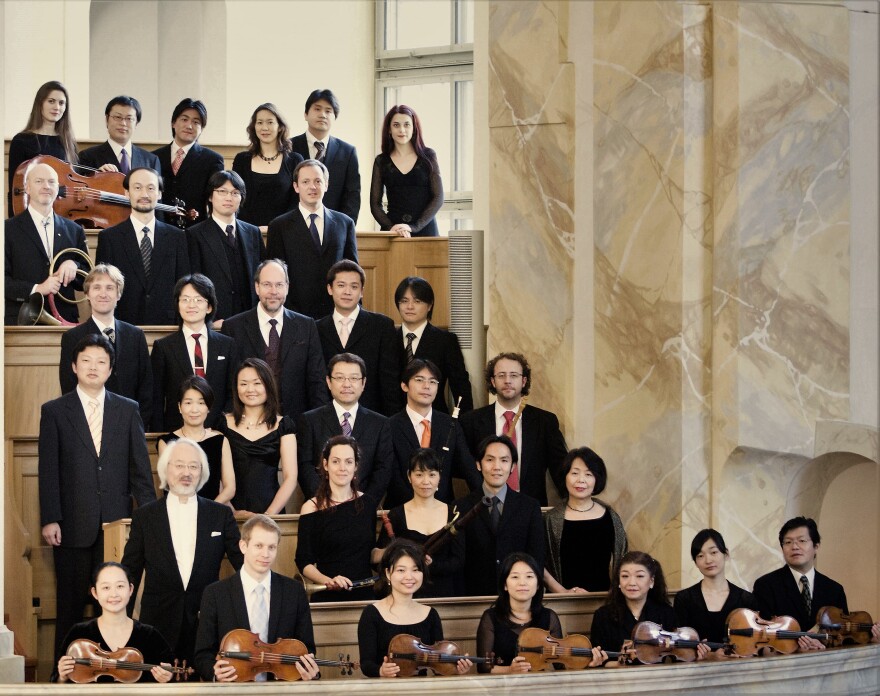
Asahina was 93 years old when he made his debut in the continental US, in the 1990s. It was also in the 1990s that Robert von Bahr, the Swedish entrepreneur who heads BIS records, was approached with the idea of recording Suzuki in the complete Bach cantatas. Bahr says he reacted with “uncontrollable laughter” - then made the journey to Tokyo, heard Suzuki and his Bach Collegium Japan, and “the sun came up.” Suzuki began the recording project in 1995 and its excellence helped foster our understanding of classical music as a worldwide scene of equals. To quote Jonathan Freeman-Attwood, the head of the Royal Academy of Music, in 1996 Western reviewers were astonished that "a Japanese choir could sing such perfect German or that Japanese instrumentalists could comprehend ‘style’ so effortlessly," but it soon became apparent that Suzuki had "a subtle and embedded understanding of Bach" - and that "the world is smaller than we think."
That said, Japan deserves discussion of its own; I’m by no means an expert, but let me give it a whirl.
Masaaki Musing No. 2: Japan as a scrambler of stereotypes and of preconceptions about modern life - Does mention of Japanese culture make you think of J-Rock, J-Pop, and J-Psychedelia as quickly as of kotos and taikos? If so, you have a sense of how Japanese citizens can resist being corseted into Western stereotypes. When an American ethnomusicologist fretted over Japanese interest in Western music, it was pointed out that their interest was propelled from within. Japan was never colonized; in fact, writes Jürgen Osterhammel in The Transformation of the World: A Global History of the Nineteenth Century, the modernizing Meiji government (1868-1912) first “encouraged [the] spread of European music.” In 1887, Japan opened the Tokyo Music School; Thomas Cressy (in a fine essay on Bach in Japan) notes that the school performed Bach in public in 1890. Two decades later, in 1911, the Japanese established the Tokyo Philharmonic and built a large Tokyo concert hall.
Today, Japan is the world’s highest per-capita consumer of classical CDs. Japan’s Sony corporation invented the compact disc and set its length to accommodate Beethoven’s Ninth Symphony. That symphony is performed more often per capita in Japan than anywhere else: Japan mounts hundreds of performances of the Ninth annually to honor the New Year. If any nation “owned” the Ninth, it would have to be Japan, not Germany or Austria.
Suzuki is not the only Japanese artist at the musical summit today. Midori Goto is one of the most probing violinists of our time, and Mitsuko Uchida may be our most important Mozart pianist/ conductor and is a profound interpreter of Beethoven, Schubert, Schumann, and Schoenberg. To be sure, becoming ex-pats was crucial to both of their artistic ascents: Midori moved to New York when she was 11 to study with Dorothy DeLay, whose other students include Itzhak Perlman; Uchida moved to Vienna when she was 12 to study with the legendary pianists Wilhelm Kempff and Stefan Askenase. (Today, Uchida is a Dame Commander of the Order of the British Empire, of which she became a citizen, and the first sole Artistic Director of Vermont's Marlboro Festival since Rudolf Serkin.)
Like them, Suzuki left home to study in an international center - Amsterdam was to historical performance what Vienna or New York were to mainstream classical music. But unlike them, his major education was in Japan and his time overseas purely postgraduate. (And Gaetan Nalleau has detailed how radically different Suzuki's Bach style is from that of his Dutch instructor Ton Koopman.) And a more significant difference is that in spite of the discrimination Japanese artists can receive even from Japanese audiences, Suzuki built his international career and his legacy at home.
To be sure, his contribution to making Japan “an indispensable presence in the world of historical performance” has roots that precede him (Japanese scholars uncovered the details of when Bach wrote the Mass in B Minor and Well-Tempered Clavier, and one of them created comprehensive free online bibliography of all Bach research); and he was able to forge a new approach to Bach singing in Japan in a way that may have been harder in a country with a hardened modern Bach-singing tradition, like Germany. Suzuki demonstrates not only broad cultural trends, then, but also how much influence an exceptional individual can have on a culture. Some estimates have Japan tied for the international lead in "Bach choirs per capita," and the majority of those were inspired by the Bach Collegium Japan.
One last musing: Suzuki proves that we shouldn’t think of Japanese interest in Western music as superficial or a “postmodern simulacrum” (or as comic, like the fictional experiences of Bill Murray’s character in the movie Lost in Translation). Suzuki has journeyed as deeply into Bach’s creative world and become as fluent in his musical language as any artist in Europe, America, or anywhere else. His journey was rigorous, without shortcuts, and I hope to discuss it in the future.
I doubt that I'll ever publicly muse on broader cultural topics such as Japan’s postwar cultural shifts, or Emiko Ohnuki-Tierney’s idea that Japan is “a nation best understood or defined by its relation to” others, or Ken-ichi Sasaki’s portrayal of the dismay of Westerners “turning to Japan as an escape from the problems of modernity” and then finding that in fact Japan’s modernity raises issues “very similar, if not identical” to the West’s. Such insights are above my paygrade. So is John Butt’s fascinating speculation that Japan offers a test of his idea that among the arts, classical music has unique connections to the underlying “imperatives of modernity” (by which he means the era that supplanted Antiquity and the Middle Ages) - and that classical music might have special value in helping us “creatively to regenerate one particularly crucial strand of modernity: its striving for a world that continually challenges inherited prejudices.”
Above my paygrade, as I said, but I will note that I don't think he's referring specifically to prejudices about national stereotypes - and I doubt that Suzuki himself would see his work in those terms - but I will leave it there. What I will write about next is where you might start in hearing Suzuki - six notable Bach recordings you might want to explore. Join Suzanne and me to hear them!
SIX NOTABLE SUZUKI BACH RECORDINGS YOU MIGHT START WITH
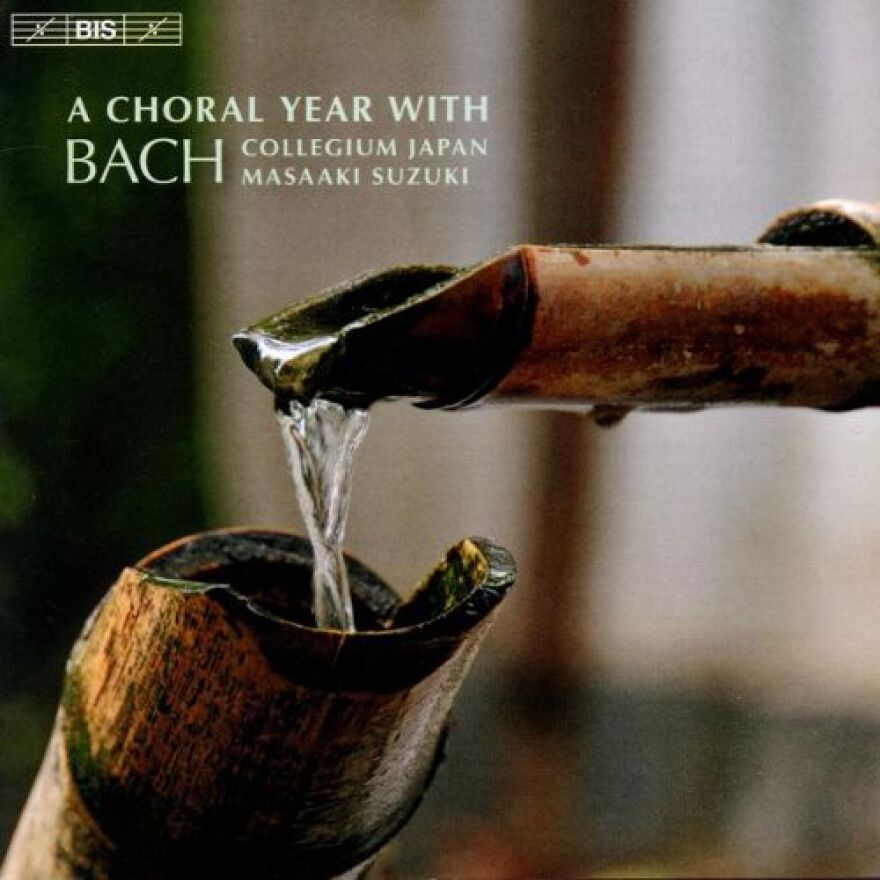
Bach: A Choral Year (BIS 1951) - Suzuki’s complete cantatas now sell in a 55-disc box set for $300, but… when would you find time to listen to them all? If the prospect sounds unrealistic or you want to sample first, let me recommend this single CD of great choral movements. They were chosen as favorite recordings by Suzuki himself, have a wide range of feelings and sounds, and include such familiar pieces as what we call "Jesu, Joy of Man's Desiring" and the opening of the St. Matthew Passion as well overlooked delights (It’s IPR’s$5/month pledge premium, too).
IPR contributor Uri Golomb wrote recently of a few critics who found Suzuki’s cantatas “over-refined and genteel”; by contrast, Uri finds that “Suzuki’s Bach can often convey a nervous energy and dramatic drive”- and I suspect that Uri is hearing accurately while the writers he’s referring were misled by their stereotypes of Japan. One listener who had no such stereotypes in his ear was Gustav Leonhardt, the influential Dutch keyboardist-conductor who led pioneering Bach cantata recordings. In a brilliant study of that cycle, Gaetan Naulleauwrites that Leonhardt was not pleased with recent Bach complete cantata sets from England, Belgium and the Netherlands, but absolutely loved the one by Suzuki. Naulleau identifies the similarity between Suzuki and Leonhardt in Bach, in “their clear textures, their uncompromisingly precise vocal phrasing modelled on that of the instruments, and the polyphonic tension that it engenders in the big choral movements.” Whatever we might call that, “Japanese” is not the right term!
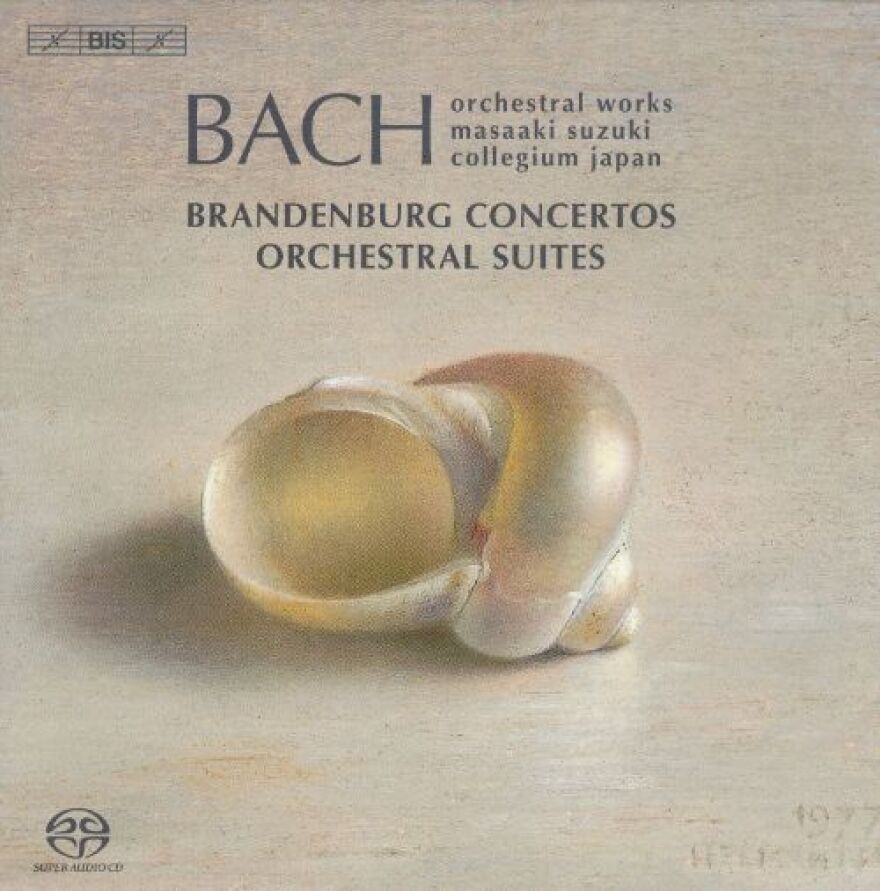
Brandenburg Concertos and Orchestral Suites (BIS 1721/22) -This deluxe set is one of IPR's $30/ month premiums. With hundreds of recordings available of the concertos and suites, we all have favorite sets (for me, that would includes such artists as John Butt and Monica Huggett, to name two very different approaches) - but even then Suzuki’s stands out as special. To quote Classics Today's David Hurwitz, who is not easily impressed, “Their principal distinguishing quality is a lightness and clarity of texture that, combined with Masaaki Suzuki’s ideally chosen tempos (not too fast, but always lively), gives Bach’s counterpoint an expressive joy very different from the full-speed-ahead mechanical relentlessness typical of so many period-instrument performances of this music… First-class engineering and generous timings…. make this set a prime recommendation.” [I’d add that it’s the second recording to use A=392, a tone below modern pitch but what Bach almost certainly used, so it has less surface brilliance but more internal energy than most.] Hurwitz calls the Orchestra Suites “magnificent,” noting that “few offer this much satisfaction on purely sonic terms–not just the engineering, which is state-of-the-art in both stereo and multi-channel formats, but the actual textures and colors that Masaaki Suzuki coaxes from his ensemble. In truth, it’s difficult to make this music sound well…. Miraculously, Suzuki has solved all of these problems.”

Bach Organ Works, vol. 1 (BIS 2111) - Toccata and Fugue in D minor, BWV565; Pastorale (Pastorella) in F major, BWV590; Partite diverse sopra il Corale ‘O Gott, du frommer Gott’, BWV767; Fantasia (Pièce d’orgue) in G major, BWV572; Prelude and Fugue in G minor, BWV535; Canonic Variations on ‘Vom Himmel hoch da komm’ ich her’, BWV769; Prelude and Fugue in E minor, BWV548 - If you haven’t bought a Bach organ recording in years, you really should hear the quality of both playing and recorded sound nowadays. But where to start? I’d suggest Suzuki, in the first volume in a projected cycle. Says Freeman-Attwood in Gramophone, “Of all the current doyens of modern Bach performance, Masaaki Suzuki knows no limits to his explorations. This is a dazzling recital (from a musician better known as a director-harpsichordist) discerningly assembled … this recording is as likely to turn ears as any [organ recital] made… Great instrument aside, this is largely down to the judicious alchemy of Suzuki’s perception of how architecture and local color can collide to mesmerizing effect.”
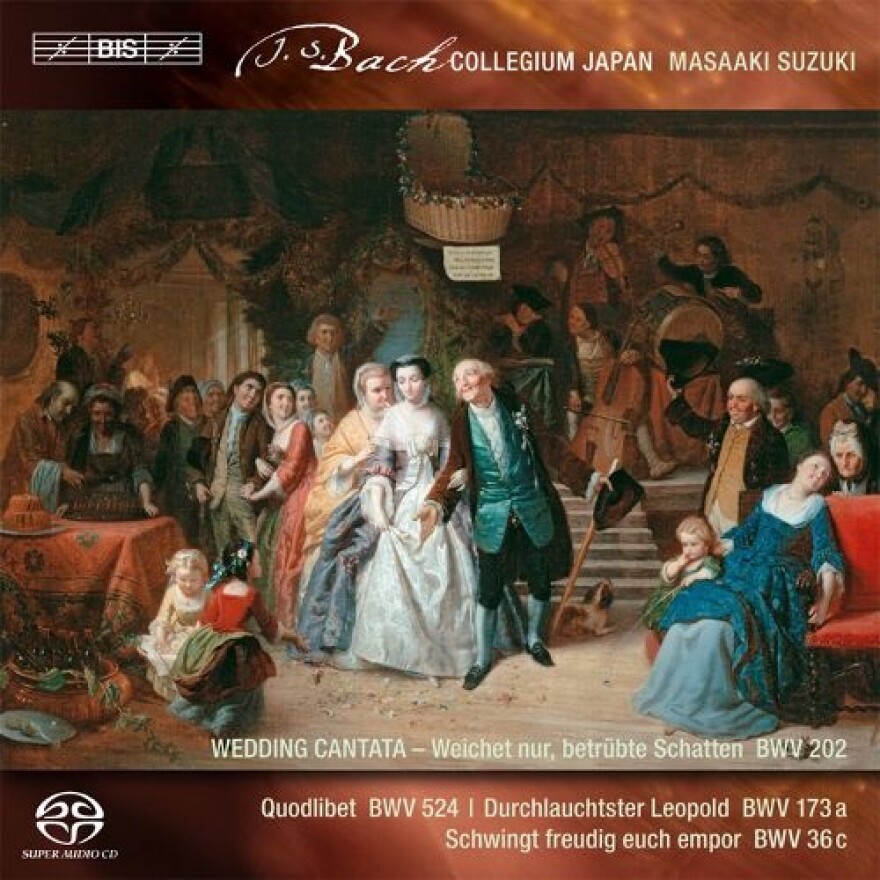
Bach Secular Cantatas, vol. 3: Wedding Quodlibet, Wedding Cantata BWV 202, congratulatory serenades BWV 36c and 173a BIS 2014) - Bach wrote these pieces for wedding and "congratulatory" celebrations outside of liturgy, and Suzuki and co. are clearly having a good time. Uri Golomb writes that his conducting is “incisive and vigorous; the musicians seem to play and sing with a slight twinkle in the eye..... Joanne Lunn’s radiant singing is supported by consistently elegant playing invigorated at times with surprisingly cheeky perkiness.”
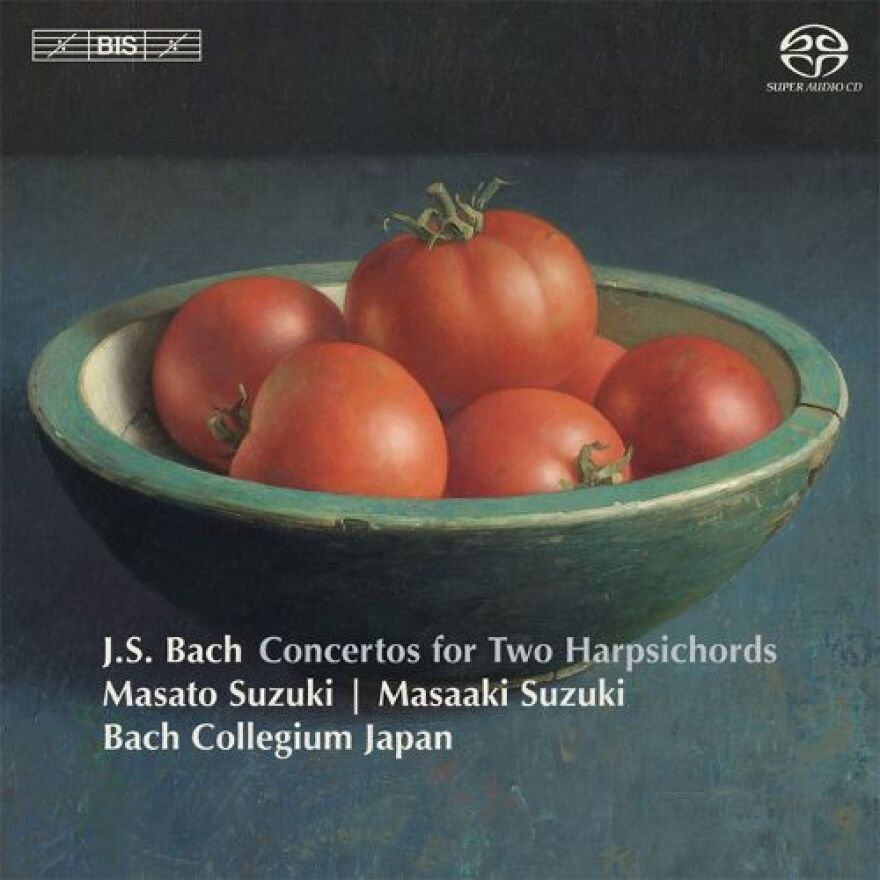
Bach Concertos for Two Harpischords (BIS 2051) - Really, I should send you to Suzuki's personal, insightful, infectious Goldberg Variations, but this disc is special in a unique way. Suzuki’s son Masato has become a notable composer and keyboardist himself, and it’s a blast to hear father and son performing music that Bach himself performed with his own sons. The playing and sound is superb enough to appeal even to those who don't always love the harpsichord.
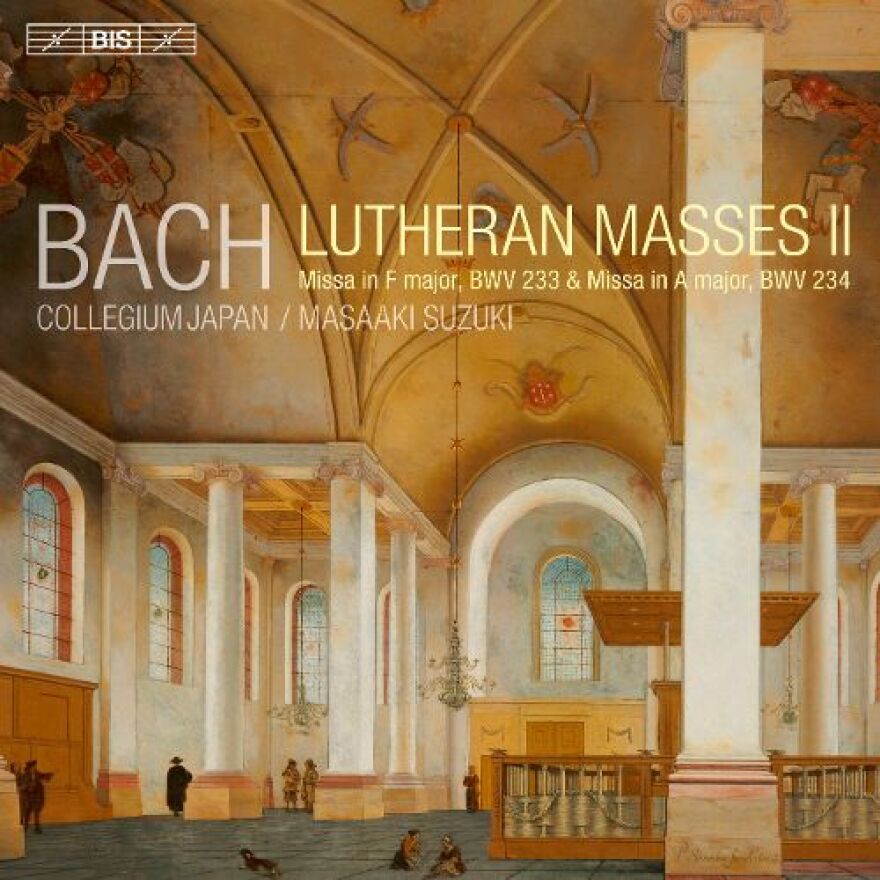
Bach Masses in F Major and A Major (BIS 2121) - The greatness of the Mass in B Minor has overshadowed four shorter Bach settings for which I feel a special affection - and Suzuki's recordings are special, and are complimented by mass settings by other composers that Bach performed in Leipzig, thus giving us insight into Bach's own creative life. (Suzuki has recorded many composers whose music Bach might have known and more, but that's for another roundup!)


